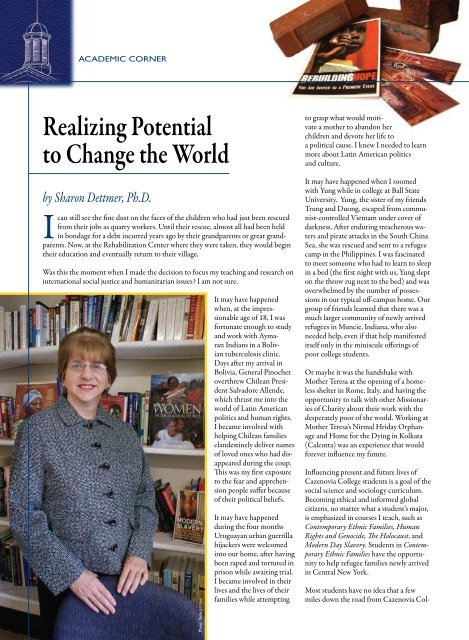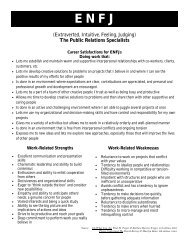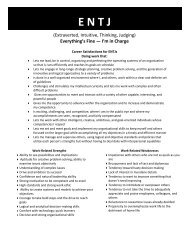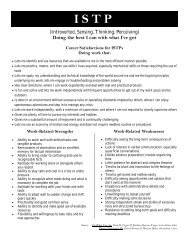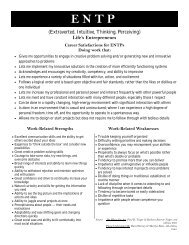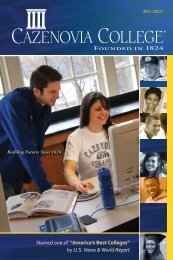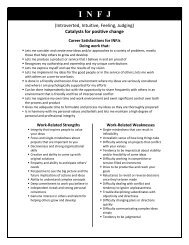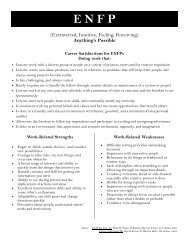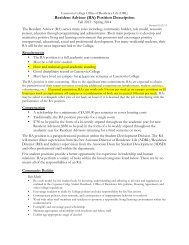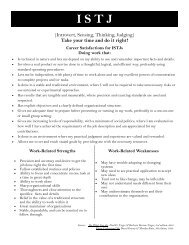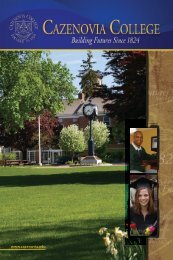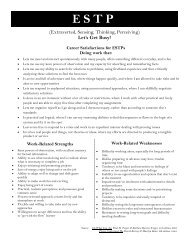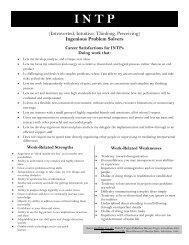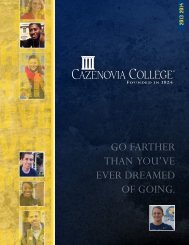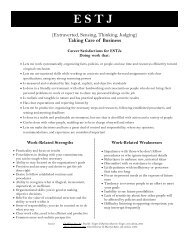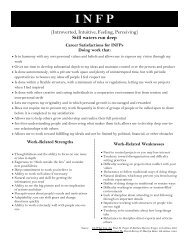Seeking Justice
Fall/Winter 2010 - Cazenovia College
Fall/Winter 2010 - Cazenovia College
- No tags were found...
You also want an ePaper? Increase the reach of your titles
YUMPU automatically turns print PDFs into web optimized ePapers that Google loves.
ACADEMIC CORNER<br />
Realizing Potential<br />
to Change the World<br />
by Sharon Dettmer, Ph.D.<br />
I<br />
can<br />
still see the fine dust on the faces of the children who had just been rescued<br />
from their jobs as quarry workers. Until their rescue, almost all had been held<br />
in bondage for a debt incurred years ago by their grandparents or great grandparents.<br />
Now, at the Rehabilitation Center where they were taken, they would begin<br />
their education and eventually return to their village.<br />
Was this the moment when I made the decision to focus my teaching and research on<br />
international social justice and humanitarian issues? I am not sure.<br />
It may have happened<br />
when, at the impressionable<br />
age of 18, I was<br />
fortunate enough to study<br />
and work with Aymaran<br />
Indians in a Bolivian<br />
tuberculosis clinic.<br />
Days after my arrival in<br />
Bolivia, General Pinochet<br />
overthrew Chilean President<br />
Salvadore Allende,<br />
which thrust me into the<br />
world of Latin American<br />
politics and human rights.<br />
I became involved with<br />
helping Chilean families<br />
clandestinely deliver names<br />
of loved ones who had disappeared<br />
during the coup.<br />
This was my first exposure<br />
to the fear and apprehension<br />
people suffer because<br />
of their political beliefs.<br />
It may have happened<br />
during the four months<br />
Uruguayan urban guerrilla<br />
hijackers were welcomed<br />
into our home, after having<br />
been raped and tortured in<br />
prison while awaiting trial.<br />
I became involved in their<br />
lives and the lives of their<br />
families while attempting<br />
to grasp what would motivate<br />
a mother to abandon her<br />
children and devote her life to<br />
a political cause. I knew I needed to learn<br />
more about Latin American politics<br />
and culture.<br />
It may have happened when I roomed<br />
with Yung while in college at Ball State<br />
University. Yung, the sister of my friends<br />
Trung and Duong, escaped from communist-controlled<br />
Vietnam under cover of<br />
darkness. After enduring treacherous waters<br />
and pirate attacks in the South China<br />
Sea, she was rescued and sent to a refugee<br />
camp in the Philippines. I was fascinated<br />
to meet someone who had to learn to sleep<br />
in a bed (the first night with us, Yung slept<br />
on the throw rug next to the bed) and was<br />
overwhelmed by the number of possessions<br />
in our typical off-campus home. Our<br />
group of friends learned that there was a<br />
much larger community of newly arrived<br />
refugees in Muncie, Indiana, who also<br />
needed help, even if that help manifested<br />
itself only in the miniscule offerings of<br />
poor college students.<br />
Or maybe it was the handshake with<br />
Mother Teresa at the opening of a homeless<br />
shelter in Rome, Italy, and having the<br />
opportunity to talk with other Missionaries<br />
of Charity about their work with the<br />
desperately poor of the world. Working at<br />
Mother Teresa’s Nirmal Hriday Orphanage<br />
and Home for the Dying in Kolkata<br />
(Calcutta) was an experience that would<br />
forever influence my future.<br />
Influencing present and future lives of<br />
Cazenovia College students is a goal of the<br />
social science and sociology curriculum.<br />
Becoming ethical and informed global<br />
citizens, no matter what a student’s major,<br />
is emphasized in courses I teach, such as<br />
Contemporary Ethnic Families, Human<br />
Rights and Genocide, The Holocaust, and<br />
Modern Day Slavery. Students in Contemporary<br />
Ethnic Families have the opportunity<br />
to help refugee families newly arrived<br />
in Central New York.<br />
Most students have no idea that a few<br />
Dettmer received Cazenovia College’s<br />
miles down the road from Cazenovia Col-<br />
Distinguished Faculty Achievement<br />
10 Cazenovia College Magazine: Fall/Winter 2010-11 Cazenovia Award in College 2009.<br />
- Sharon Dettmer, Ph.D.<br />
Magazine: Fall/Winter 2010-11<br />
11<br />
lege are families who have experienced<br />
trauma and displacement caused by war<br />
or political policies that target specific<br />
ethnic groups. Having had to flee their<br />
native countries, many of the families<br />
linger in refugee camps for years, if not<br />
generations, waiting for the chance to<br />
start life over. Listening to the stories<br />
of these incredible survivors created an<br />
opportunity to go beyond theory, to introduce<br />
students to these humanitarian<br />
issues of global importance that are easily<br />
found here in our neighborhood.<br />
For some of these families from Bhutan,<br />
Myanmar, Sudan, and Somalia, Cazenovia<br />
College students have helped with<br />
setting up apartments, including raising<br />
money and buying needed household<br />
items. This past year students participated<br />
in the Refugee Academy in Syracuse,<br />
helping children from preschool to high<br />
school age prepare for entering American<br />
schools. They introduced children to<br />
American culture using games like Uno,<br />
and Candy Land, and children’s books.<br />
“Becoming<br />
ethical and<br />
informed global<br />
citizens, no<br />
matter what a<br />
student’s major,<br />
is emphasized<br />
in courses<br />
I teach...”<br />
Many of my students<br />
were nervous about<br />
the initial visit and<br />
engaging with people<br />
who did not speak any<br />
English. Once they<br />
started playing games<br />
or going to the park<br />
with the children,<br />
their worries subsided.<br />
Even though this was a<br />
class project, a number<br />
of students returned<br />
to work with the families<br />
on their own time.<br />
This connection was<br />
a perfect way to help<br />
them overcome their<br />
fear of “the other.”<br />
Interactions with families from other<br />
countries have not only contributed<br />
to discussions about the causes of and<br />
cures for oppression and poverty. It has<br />
directly led to creation of sustainable<br />
change by students, alumni, and others<br />
in the greater Cazenovia community.<br />
After meeting Gabriel Bol Deng, a<br />
Sudanese man who suffered incredible<br />
hardship when he lost his family after<br />
fleeing his village during an attack, the<br />
Human Rights Club, together with<br />
fellow students and staff, spent months<br />
helping to raise money to build wells<br />
that would save lives. Students raised<br />
over $3,000 in April 2010 to help build a<br />
school in Ariang, South Sudan. Classroom<br />
lessons about poverty, health care,<br />
and community engagement came to life<br />
when the number of deaths from cholera<br />
and dysentery in the village dropped<br />
from 65 to zero directly because of the<br />
students’ involvement.<br />
I am not sure if the Sudanese children<br />
now able to attend school, the homeless<br />
in Kolkata, Yung and her fellow Vietnamese<br />
refugees, the tortured prisoners,<br />
or the freed child laborers in India, will<br />
ever realize the tremendous influence<br />
they have had on me and my students.<br />
We have learned about oppression while<br />
meeting with people who were oppressed.<br />
We have learned that volunteerism<br />
isn’t charity; it is focusing on sustaining<br />
the lives of fellow human beings who<br />
have the right to be educated, receive<br />
decent health care, and drink clean water.<br />
And I have learned what a privilege<br />
it is to be able to teach and interact with<br />
committed students who are realizing<br />
their potential to change the world.<br />
About the Author:<br />
Sharon Dettmer,<br />
Ph.D., associate<br />
professor of social<br />
science, and chair of<br />
the Division of Social<br />
and Behavioral<br />
Sciences, received<br />
her doctoral degree<br />
in social science at<br />
Syracuse University.<br />
She also holds graduate certificates in<br />
international development and United<br />
Nations studies. She has taught at Cazenovia<br />
College since 1995.<br />
Dettmer has spent considerable time<br />
overseas, including living and conducting<br />
research and interviews with traditional<br />
healers, indigenous women and child<br />
slaves, in Peru, Bolivia, Nepal, and India.<br />
She teaches courses related to international<br />
human rights, genocide, social<br />
stratification and multiculturalism in the<br />
United States. She is faculty advisor to<br />
Cazenovia College’s Human Rights Club,<br />
and is a member of the American Sociological<br />
Association; American Anthropological<br />
Association; and the Southern<br />
Poverty Law Center. She is a founding<br />
board member of HOPE for Ariang,<br />
helping to bring education to Sudan.<br />
She has also directed various social service<br />
programs in Syracuse, including working<br />
with at risk families, educationally<br />
neglected children and immigrants from<br />
Latin America, Africa, Asia and Europe.<br />
Photo: Tasha Johnson<br />
Photos: Courtesy of Sharon Dettmer, Ph.D.


